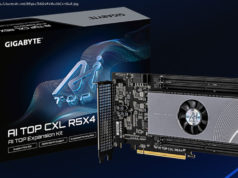Raspberry Pi owners can download the newest major release of Raspbian OS today.
On the heels of the Debian 9 Stretch release, Raspberry Pi’s Debian-based Raspbian OS has been updated and is now available for download.
The new Stretch version of Raspbian, the official OS for Raspberry Pi, brings a number of under-the-hood improvements over its two-year old Debian predecessor, Jessie, which ushered in a default boot to a desktop GUI on Raspbian.
Given the millions of Raspberry Pi devices sold every year, it’s likely that a fair chunk will be updating to Raspbian Stretch.
Linux fans will know that Debian Stretch arrived in June with the Linux 4.9 kernel, so the Raspbian update is timely and includes new versions of pre-installed Raspbian applications, Bluetooth improvements, changes to the default login, and a key security fix.
The latest version of audio-creation coding tool Sonic Pi is included in this version of Raspbian OS, which brings last month’s „most ambitious“ update ever to the Pi. This update introduced new audio input and output options, and several new sound-effect capabilities.
The OS now ships with version 60 of the Chromium web browser, the newest stable release of Chrome. With improved memory usage, it should run faster and lighter than before.
Raspbian OS has also dropped Pulse Audio for handling audio over Bluetooth and instead includes the Bluez-ALSA package. Integrating Pulse Audio with other audio sources was „clumsy“, according to Raspberry Pi Foundation. Users can still install Pulse Radio if they wish.
In Stretch, applications no longer assume the current user is „pi“, the default account in Raspbian, and will instead automatically login with the current user name.
For sudo access, Raspian has stopped setting up the „pi“ user with access to sudo without requiring a password.
„Now desktop applications which require sudo access will prompt for the password rather than simply failing to work if a user without passwordless sudo uses them, “ notes Raspberry Pi Foundation’s UX engineer, Simon Long.
Raspbian developers have also added a new extension that allows the Sense HAT add-on board for Raspberry Pi to work directly with the Scratch 2 offline code editor.
The extension can be loaded from More Blocks. It works with a physical Sense HAT, or a web-based emulator, such as the virtual Sense HAT created by Trinket that added physical-world sensors, gyroscopes, and color LEDs that can be coded to run on a display.
Finally, Raspbian Stretch includes a patch for the widespread Broadpwn flaw that affected iPhones and several Samsung smartphones with the BCM43xx Wi-Fi chipset. This bug also affected the Pi 3 and Pi Zero W.






